I Ching, Yijing or Zhou Yi
"Oracle of the moon": © 2000 LiSe
 Yi Jing, Oracle of the Moon
Yi Jing, Oracle of the Moon


The emperor's garden
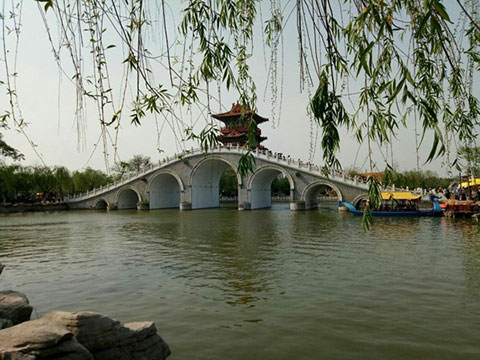
The Rainbow bridge in Shanglin Yuan today
上林苑
Shanglin yuan
'The garden of the higher forest'
China is famous for its gardens. Most are on the lower reaches of the Yangtze River. These gardens were renowned for their delicate beauty, and as such were favored by scholars and calligraphers as places where they could work and live close to nature.
One garden which significantly influenced the art of garden construction was the Shanglin Yuan (Higher Woods hunting park) of the Han Dynasty. 'Shang' means high, but also emperor.
The power of the Han Dynasty and its garden construction both reached their peak during the reign of the emperor Han Wu (140 BC-87 BC).
The power of the Han Dynasty and its garden construction both reached their peak during the reign of the emperor Han Wu (140 BC-87 BC).
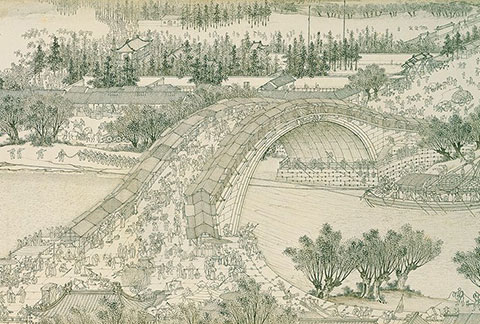
The original 'Rainbow bridge'.
The Shanglin Yuan garden was surrounded by a wall of approximately 150 kilometers in length. The eight largest rivers of central Shaanxi all run through the garden. The Kunming Pond alone covered an area of some 150 hectares itself. See cedargallery.nl.
Two famous scrolls depict the emperor's gardens.
Yulin park: "Along the River During Qingming Festival"
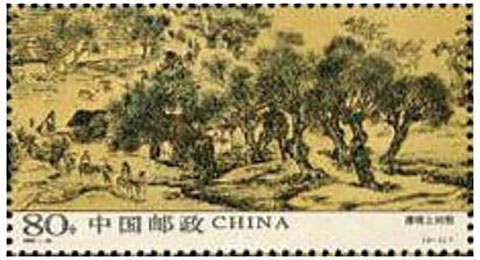
A stamp with a detail of the painting "Along the River During Qingming Festival", the 12th century original by Zhang Zeduan.

The entire scroll
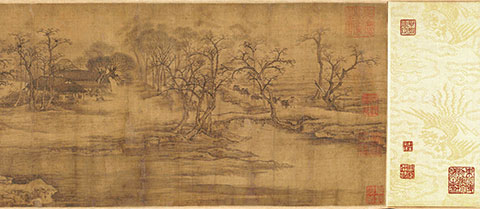
Part of the scroll. The entire scroll is 24.8 cm wide, 528.7 cm long.
See the page about verse 36, where this 'Garden of Pure Brightness' is mentioned.
See the page about verse 36, where this 'Garden of Pure Brightness' is mentioned.
The "Shanglin fu" scroll
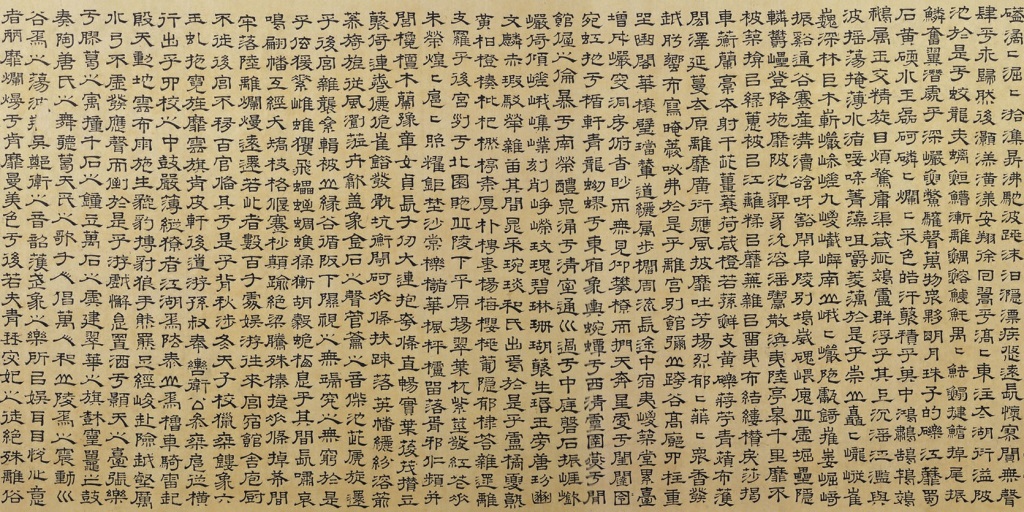
The poem was composed by Sima Xiangru in 137 BCE.
These poems are a hybrid of prose and rhymed verse.
(See 'some landscapes blogspot')
These poems are a hybrid of prose and rhymed verse.
(See 'some landscapes blogspot')
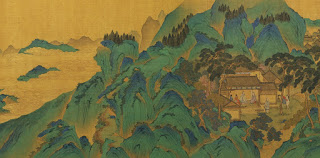
There is a magnificent Ming Dynasty scroll attributed to Qiu Ying (c. 1494-1552) which illustrates the poem.
See the page about verse 38, where this garden is mentioned.
See the page about verse 38, where this garden is mentioned.